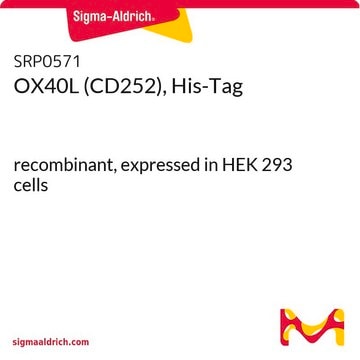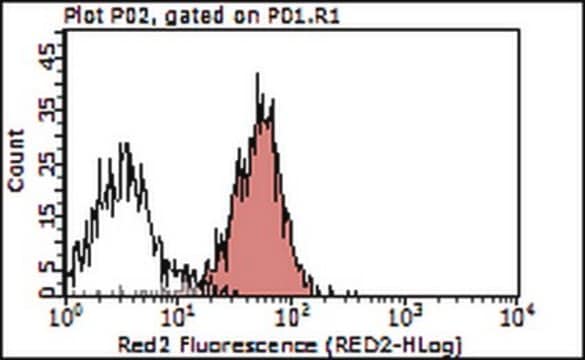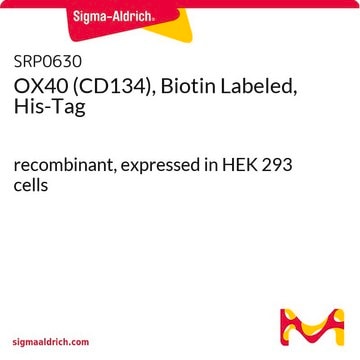SRP3133
OX40 Ligand human
recombinant, expressed in Hi-5 Insect cells, ≥97% (SDS-PAGE), ≥97% (HPLC), suitable for cell culture
Synonym(s):
CD252, Gp34, OX40L, TNFSF4
About This Item
Recommended Products
biological source
human
recombinant
expressed in Hi-5 Insect cells
Assay
≥97% (HPLC)
≥97% (SDS-PAGE)
form
lyophilized
mol wt
15.5-25.0 kDa
packaging
pkg of 10 μg
technique(s)
cell culture | mammalian: suitable
impurities
<0.1 EU/μg endotoxin, tested
color
white to off-white
UniProt accession no.
shipped in
wet ice
storage temp.
−20°C
Gene Information
human ... TNFSF4(7292)
General description
Biochem/physiol Actions
Sequence
Physical form
Reconstitution
Storage Class Code
11 - Combustible Solids
WGK
WGK 3
Flash Point(F)
Not applicable
Flash Point(C)
Not applicable
Choose from one of the most recent versions:
Certificates of Analysis (COA)
Don't see the Right Version?
If you require a particular version, you can look up a specific certificate by the Lot or Batch number.
Already Own This Product?
Find documentation for the products that you have recently purchased in the Document Library.
Our team of scientists has experience in all areas of research including Life Science, Material Science, Chemical Synthesis, Chromatography, Analytical and many others.
Contact Technical Service





